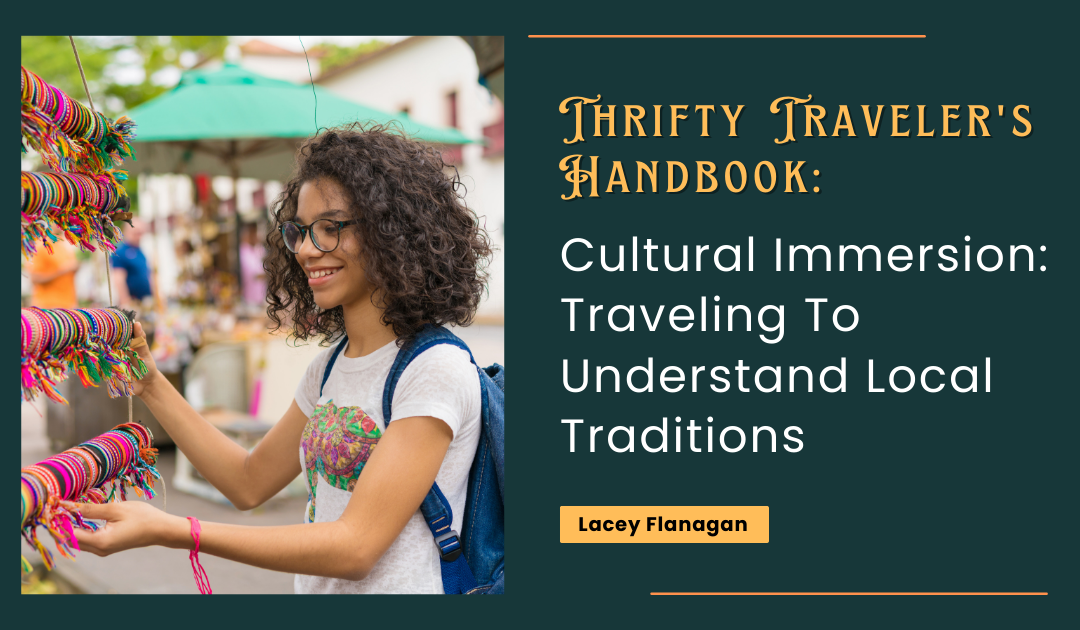Traveling has the power to broaden perspectives, offering insights into cultures, traditions, and ways of life different from our own. Cultural immersion, a form of travel that emphasizes engaging deeply with local customs and communities, allows travelers to connect with destinations in meaningful ways. Rather than skimming the surface as a tourist, it invites you to become a participant in the culture, enriching your journey and leaving a lasting impact.
Understanding local traditions begins with embracing curiosity and respect. Immersive travel is about moving beyond popular tourist attractions and engaging with the daily lives of the people who call a destination home. This could mean attending a traditional ceremony, learning a local craft, or sharing a meal with a family. For example, in Japan, staying in a ryokan and participating in a tea ceremony provides an intimate look at centuries-old traditions. In Morocco, joining a cooking class to prepare tagine dishes offers a sensory experience rooted in history and hospitality.
Language plays a crucial role in cultural immersion. Even learning a few basic phrases in the local language can go a long way in building connections. It signals respect for the culture and often leads to warmer interactions. Apps and language guides make it easier than ever to pick up essential words and phrases, while longer stays or dedicated language courses allow for deeper engagement.
Festivals and celebrations provide a vibrant window into a community’s values and heritage. Timing your visit to coincide with a local festival can offer unforgettable experiences. From the color-drenched streets of India during Holi to the elaborate parades of Brazil’s Carnival, these events showcase the spirit and identity of a culture. Participation, when approached respectfully, allows travelers to witness traditions in their most authentic forms.
Food is another gateway to understanding a culture. Exploring local markets, dining at family-owned eateries, and savoring traditional dishes tell the story of a region’s history and environment. Culinary traditions often reflect the ingenuity of a community, from the spices that define South Asian cuisine to the farm-to-table ethos in Scandinavian countries. Sharing meals with locals, whether in a home or through organized experiences, fosters connections and creates memorable exchanges.
Staying in locally-owned accommodations or participating in community-based tourism initiatives further enhances cultural immersion. These options often support local economies and provide authentic experiences. For example, eco-lodges run by indigenous communities in Costa Rica offer insights into sustainable practices rooted in ancient traditions. Similarly, homestays in rural villages allow travelers to witness daily life and learn directly from the community.
Understanding local traditions also means being mindful of cultural norms and customs. Researching a destination’s etiquette, dress codes, and taboos helps avoid unintentional disrespect. In countries like Thailand, for instance, showing respect to monks and temples is essential, while in many Middle Eastern cultures, dressing modestly is a sign of consideration. Being a culturally sensitive traveler demonstrates a commitment to learning and appreciating the host culture.
Participating in traditional arts and crafts offers another dimension of immersion. Many communities around the world are eager to share their creative heritage with visitors. Whether it’s weaving textiles in Guatemala, making pottery in Greece, or learning calligraphy in China, these hands-on experiences provide a deeper understanding of the cultural significance behind each art form.
Cultural immersion is as much about listening and observing as it is about participating. Taking the time to engage in conversations with locals, listen to their stories, and observe their daily routines helps travelers gain a nuanced understanding of the community. These interactions often reveal the values, struggles, and aspirations that define a culture.
Traveling to understand local traditions requires an open mind and a willingness to step out of your comfort zone. By approaching each experience with curiosity and respect, you can form meaningful connections, gain fresh perspectives, and contribute positively to the communities you visit. Cultural immersion transforms travel into a journey of mutual understanding, leaving both the traveler and the host enriched.

